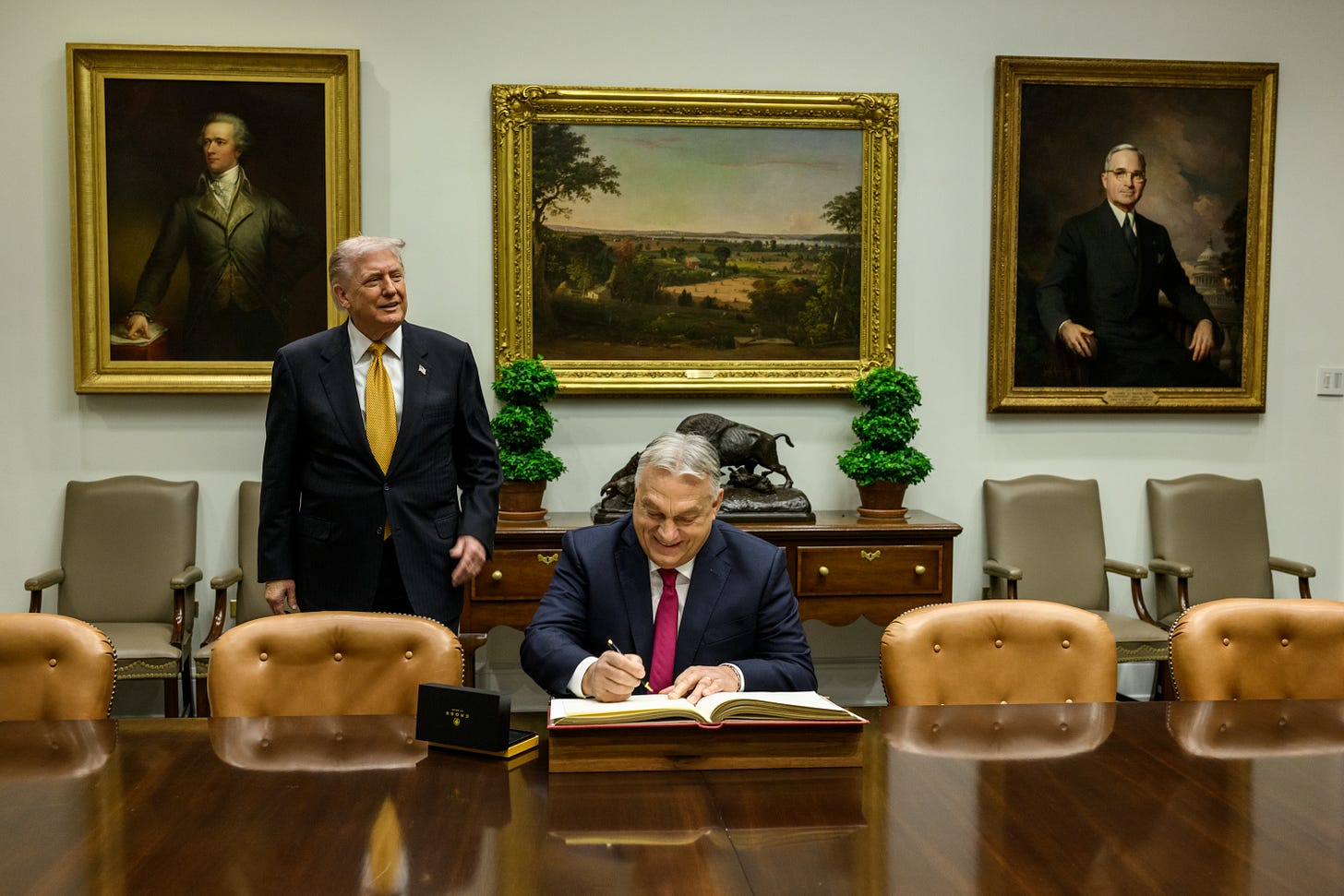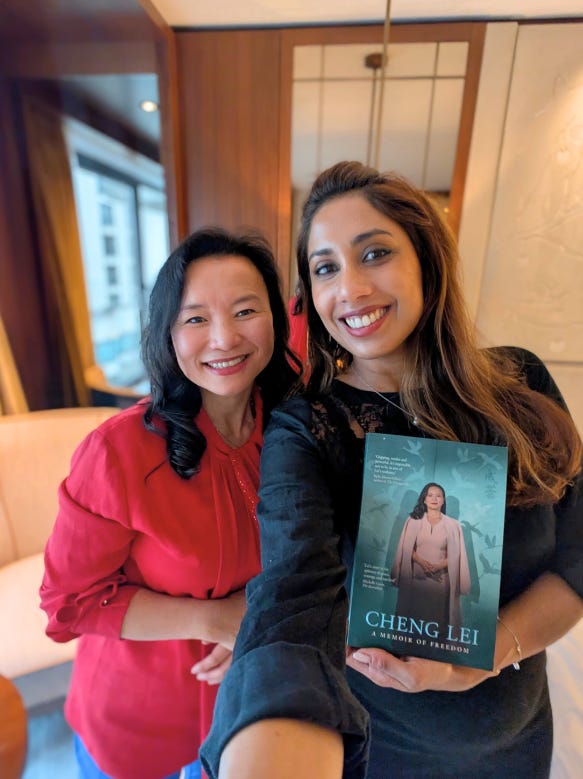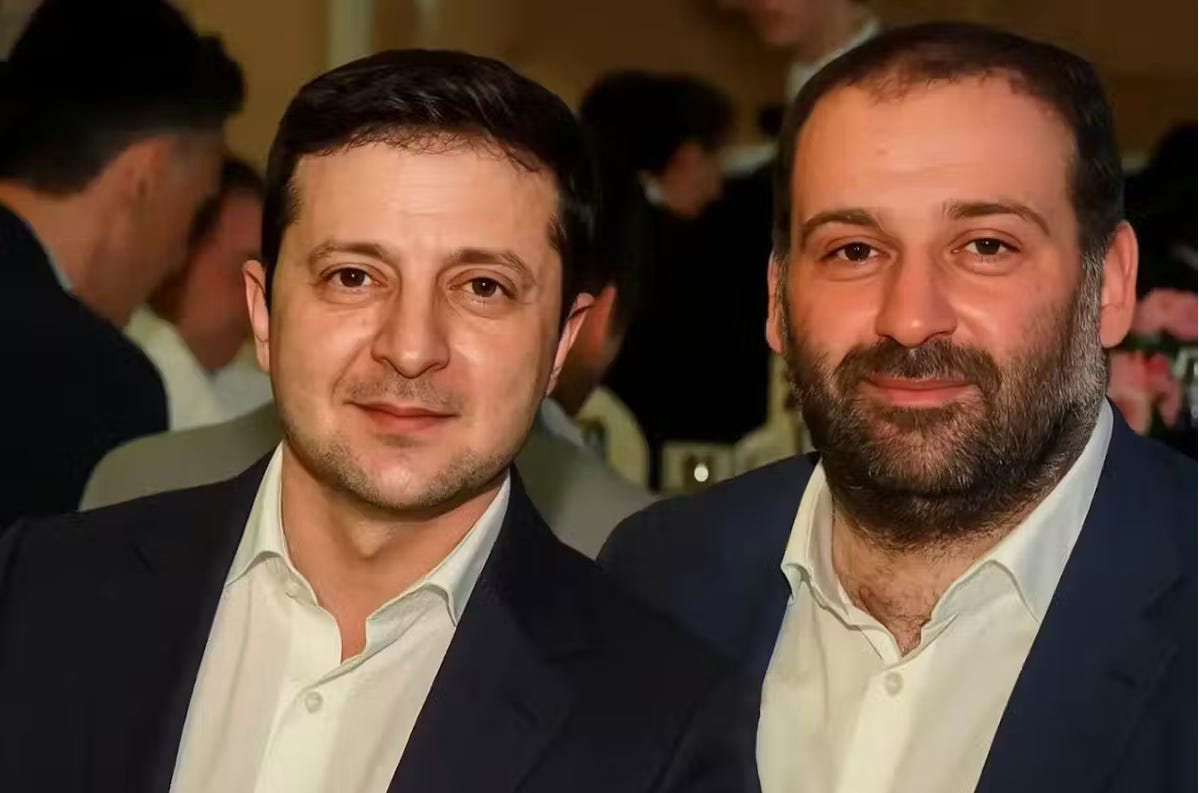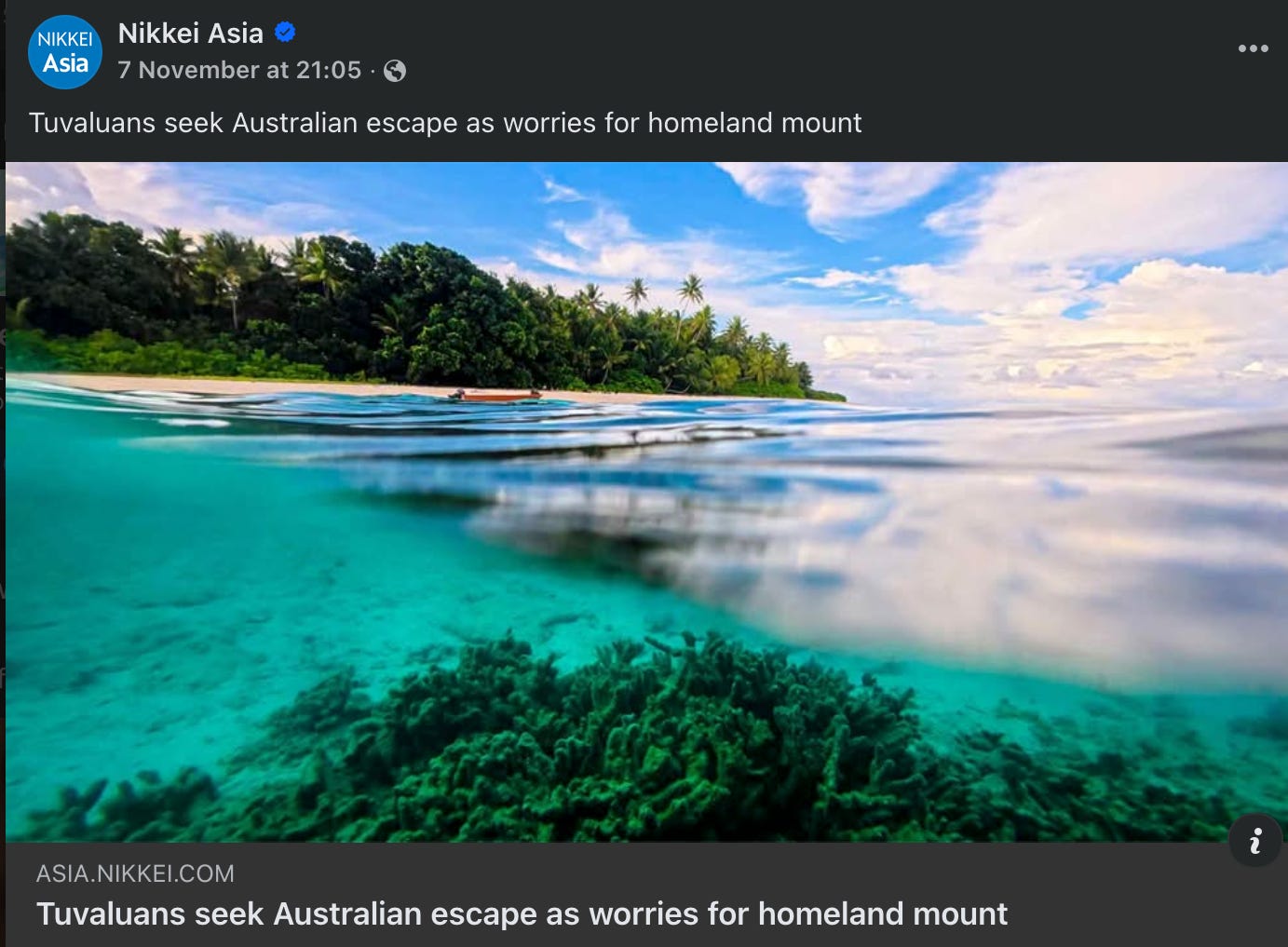The return of What I'm Reading
November 14: Five reads that piqued my interest this week
Firstly, a huge apology for how long it has taken me to get back to What I’m Reading.
Basically, my year has been on turbocharge since March, and I’ve had a difficult time keeping up with myself! I have not stopped since the Australian election, really.
Until this month, I had not spent a full week in my own bed since August. And so my goal is to try to make November the one month of 2025 that I do not leave the country. Halfway through, it’s so far mission accomplished.
So, while this is by no means a complaint or a justification, it is hoped to be an explanation for why I’ve not been able to compile my reading lists with the weekly frequency that I’d like.
Happily, I have not stopped reading throughout this time! In fact, I’ve been able to read more books lately than usual, so my next few editions will be full of good reviews.
Cheng Lei’s Memoir of Freedom
I cried and laughed, but mostly sobbed my way through Cheng Lei’s utterly gripping Memoir of Freedom. (We also laugh and cry through our podcast interview coming up this weekend!)
Cheng Lei is the Australian-Chinese journalist who was detained by the Chinese Communist Party (CCP) in 2020 after the former centre-right Australian government called for an inquiry into the COVID pandemic.
She was held and convicted on bogus charges, ultimately for forwarding a fellow journalist an economic report several minutes before its public release.
She was freed after negotiations between the then-new Labor government and the CCP.
Lei’s account of her imprisonment was always going to be a compelling story. But her writing makes it a searing account. And boy, can she write! Her sentences are droplets of emotion. Honest, funny, warm, raw and poetic, she takes you into her prison cells, introduces you to her cellmates and details the cruelty of her imprisonment with aching detail. Somehow, she straddles the difficult line of conveying the boredom of endless imprisonment in a captivating way.
I actually listened to this as an audiobook, which Lei, a newsreader, presents. I don’t usually listen to audiobooks, but on this occasion I was glad I did. She reads it with the emotion of the moment she is recounting. Lei feels like a close friend by the end of it, and it is impossible not to fall in love with her courage, her warmth, her tenacity, and her hilarious Australianisms mixed with her Chinese origins. I was waking up, looking forward to turning on her voice in the morning and willing her to get to her inevitable freedom chapters
It is a book full of life, of character, purpose and meaning, and I could not recommend it more. Bravo Cheng Lei!
My cellmates and I had often fantasised about what it would be like to get out: the first meal we’d eat, the first time we’d hug our families, the first time we’d get in the sack again. We swore that we would never be the same as before – blind to our riches, blithe about our loved ones. We were adamant that we would exercise as diligently as we had in the cells, that only natural food would pass our lips.
Reality wasn’t quite like that. All those things I thought I wouldn’t do, I did: play with my phone, eat crap, worry about trivial stuff, spend too much time getting dressed, get annoyed by the kids.
I felt older and stupider as I grappled with the speed of new technology, while my kids swiped and clicked at lightning velocity.
I got flustered and impatient with everyday tasks, or confused and startled at how Australia had changed. I felt I would never be done with crying. All the tears I held back for three years of disciplined calm burst from the dam and my eyes burned constantly from the wash of salt. How could I not cry, when I could not even bring myself to throw away leaves cut from roses?
Or when I took mental photos of every sunset and recorded mental audio of every birdsong? I asked myself, ‘Am I doing justice to freedom?’ and the reminder kicked fear to the roadside and lit a rocket up my arse as I attacked an impossibly long list of things I wanted to do now that I was free.
In detention we could not have imagined the happiness of freedom that was like the fiercely glinting facets of an Ottoman crown, or the dense intricate knots of a Persian carpet.
We need to talk about Ukraine
Ukraine’s President Volodymyr Zelensky has been rocked by the biggest corruption scandal of his Presidency so far.
Readers of Latika Takes will remember that when I was in Kyiv earlier this year, protests broke out against Zelensky after he tried to shut down two anti-corruption bodies.
Those anti-corruption bodies have just handed down their explosive findings into state-owned Energoatom, the largest electricity producer in Ukraine.
Investigators allege kickbacks of up to 15 per cent, worth around £76 million. The mastermind? Zelensky’s media company business partner Timur Mindich. Their media platform was used to create Zelensky’s pre-politics fame as a comedian and entertainer.
Surprise, surprise, Mindich fled Ukraine a day before the raids, meaning the way this scandal unfolded is just as damaging as what was uncovered.
This elite infighting, which is engulfing a sector that is critical to Ukraine’s ability to continue resisting Russia’s aggression, is astounding in its disregard of the existential crisis engulfing Ukraine. While its outcome, for now, is unclear, several important conclusions can already be drawn from it.
The return to a competitive political process with freedom of speech, media, and association, which was suspended as a result of the war, is vital. Fears of playing into the hands of Russian propaganda by revealing corruption in Ukraine simply enable the corrupt officials to further abuse their power and damage the country’s prospects of prevailing against Russia.
More direct involvement of the EU and the US is needed in fighting corruption in Ukraine. Corruption reduces funds allocated for the war. But it also fuels public pessimism in donor countries about the effectiveness of their continuing support.
This corruption has been hugely damaging for recruitment to the armed forces. A recent survey found that 71 per cent of Ukrainians believe the level of corruption has increased since Russia’s full-scale invasion in February 2022.
Monthly desertion rates from the army now stand roughly at the level of two-thirds of new recruits. That’s 21,000 deserters compared to 30,000 sign-ups. It’s not sustainable for Ukraine’s defence efforts – and is part of the reason for some of the recent setbacks at the frontline.
This is no longer about the country’s reputation and its prospects of European integration. Cleaning up Ukrainian politics – and being seen to do so – is now as essential for Ukraine’s survival as shoring up its air and ground defences against Russia.
Tolerating corruption is a luxury that Ukraine can no longer afford if it wants to survive as an independent country.
Hungary’s Orban tries to play Trump and Putin, unsuccessfully?
Hungary’s illiberal leader Viktor Orbán has tried to make much of his relationship with US lookalike, President Donald Trump.

Earlier this month, he travelled to the White House, threw Ukraine under the bus and secured exemptions from sanctions prohibiting the purchase of Russian gas.
Or did he?
The US has stressed that the agreement was verbal, has yet to be codified and could last as little as one year.
That would be bad news for Orbán, who heads to the polls early next year, in an election that could see him ousted. It would also suggest that the relationship between Hungary and the Trump Administration, for all their ideological closeness, is not as strong as the Hungarians had hoped.
Since then, Hungary and the US have disputed the terms of the deal, which remains just a verbal agreement between Budapest and Washington, and the White House is said to be wary of throwing its full weight behind Orbán as he faces a potential revolt at the polls that could bring the opposition to power.
‘Orbán hopes words will be enough to keep him above water,’ said a diplomatic source in Washington, adding that Trump and his Republican allies had become increasingly sceptical of the Hungarian leader’s chances in next April’s elections.
The dispute is whether Hungary has received a temporary or permanent reprieve from sanctions targeted at the Russian energy majors Rosneft and Lukoil, which have continued to supply Hungary and Slovakia despite anger from other countries in the European Union.
Hungary has claimed that Trump promised them an indefinite exemption, effectively allowing the country to continue to import energy from Russia. But the administration has said it has only exempted Hungary from the sanctions for one year.
‘We have received a waiver for an unlimited period from the sanctions. Anyone who states differently wasn’t present during the meeting,’ the Hungarian foreign minister, Péter Szijjártó, said during a press briefing last Saturday, calling media reports ‘fake news’.
Tuvaluans head to Australia
This is a stunningly presented piece on the security agreement Australia signed with the tiny island of Tuvalu, which gives its 11,000 residents the chance to relocate to Australia before it becomes uninhabitable from climate change.
Around 80 per cent of Tuvalu’s population applied to relocate to Australia under the agreement signed in 2023, which prohibits Tuvalu from signing security agreements with any other country (read China) before consulting Australia.
This agreement, along with securing Lei’s freedom (above), is two of the Albanese Labor government’s strongest foreign policy wins in my book.
Tevina Kammari, who staffs a hotel bar in Funafuti, was among this year’s first visa lottery winners. She plans to move with her husband, a supervisor at one of the capital’s largest retailers, to Melbourne where they look forward to legally mandated pay of at least 24.95 Australian dollars ($16.20) per hour. That compares with their current wages of AU$4 to AU$6 an hour.
‘I’m so happy,’ said Kammari, 21. ‘I want to satisfy the needs and wants of my family. … There’s just not enough money.’
Family, in the form of a 2-year-old child, was also Ainoama Kaitu’s motivation to apply for a Falepili visa to escape Tuvalu’s rising seas. She plans to reenter the lottery again next year if she is not accepted in this year’s group.
‘Looking in the future for my daughter here in Tuvalu is kind of sad,’ said the 28-year-old. ‘She won’t be able to see … how Tuvalu used to be in the past.’
Meanwhile, Iakopo Matanile has pushed back his family’s departure for Brisbane by a month or two. They have until next September to make the move under the terms of their Falepili visa. But news of large anti-immigration rallies in Australia in August and October have given him some second thoughts about the community he is about to enter. ‘What if they don’t want us?’ Matanile said.
Lily Allen’s masterpiece
Not since Alanis Morrisette’s Jagged Little Pill has an artist released such a devastating betrayal track/album.
Lily Allen’s West End Girl is spectacular, addictive and chock full of bangers. (My favourites are Nonmonogamummy, 4chan Stan and Dallas Major).
It is a return to the days, slash nineties, when you listened to an album in its entirety from start to finish, again, and again, and again.
Her lyrics are painful and even in a world of oversharing, shockingly honest. I don’t know how someone who sings so delightfully can sing so perfectly about pain but Allen does it in her best album of her career.
In a world of confected bland and mediocre (looking at you Taylor Swift), choose honesty, innovation and talent.
Five stars Lily.
Out of the many thousands — surely tens of thousands — of albums I’ve listened to in my time, I can’t recall one that had me on the edge of my seat from the first moments to the last on first listen the way Lily Allen’s new “‘West End Girl’ did, almost as if it were a suspense movie.
The tension doesn’t come in wondering about where the record’s narrative is ultimately headed; as you may have heard, this is a divorce record with a capital D. My inability to sit back in my chair came from just savouring every confessional line and wondering what the hell she was going to tell us in the next one to top it. It’s the pleasure of listening to a master storyteller who makes your jaw drop by seeming to have spilled all the tea almost at the outset, and then the tea just keeps on coming. Not since Boston in 1773, maybe, has anyone dumped it this massively, or this fulfillingly.
If all Allen did was read like-minded passages of her diary aloud, you’d still have to give the album some points. It’s not just what she says from moment to moment but how she says it that keeps you riveted. And that applies on fifth, sixth and seventh listen, too, however well you’ve absorbed the story beats. The level of pop craftsmanship remains superb throughout, too, in 14 songs that somehow manage to keep the emotions feeling utterly raw at every turn, even as the music itself is anything but.
So: Come for the shock value, and stay for the high level of craftsmanship. Then stay even longer for how cannily the album sustains its mix of droll delivery and pure heartbreak. It’s a place you’ll probably want to linger.
And that’s my list for this edition.
📻 This morning, I appeared on Times Radio to discuss the week in British politics.
I recently spoke at Oxford University’s The Emerging Threats Group about what I perceive are challenges in national security. You can read a summation of that here.
Please do send me anything that’s caught your eye. I enjoy knowing what you’ve been reading.
Some of you have started to offer me copies of your books etc. Please email me at latika@latikambourke.com for a forwarding address for hard copies.





